Warning for Anthony Albanese: ‘It won’t be comfortable if he comes here’, regional Australia says
Anthony Albanese shouldn’t have been surprised by the Illawarra hecklers. Come election time he will have to pick a careful path through regional Australia if he is to avoid further embarrassment.

The white-hot anger that greeted Anthony Albanese on the NSW south coast on Friday is not an isolated incident about the impact of a single offshore wind precinct.
In rural and regional pockets throughout Victoria, NSW and Queensland, there’s growing rage among locals grappling with a barrage of transmission lines, batteries, wind and solar farms – and they’re waiting for the government’s election caravan to come to a town near them.
“He’s disregarded the regions and come election time he will have to show his face out here and it won’t be comfortable,’’ said Victorian farmer Glenden Watts. “We won’t miss an opportunity if he’s bold enough to come to the Mallee (in northwest Victoria). We’ll definitely be there telling him what we think about what is being forced on us. We didn’t want this fight but we have to stick up for ourselves, our farms and our communities and it’s not as if they’ve been listening to us so far.’’
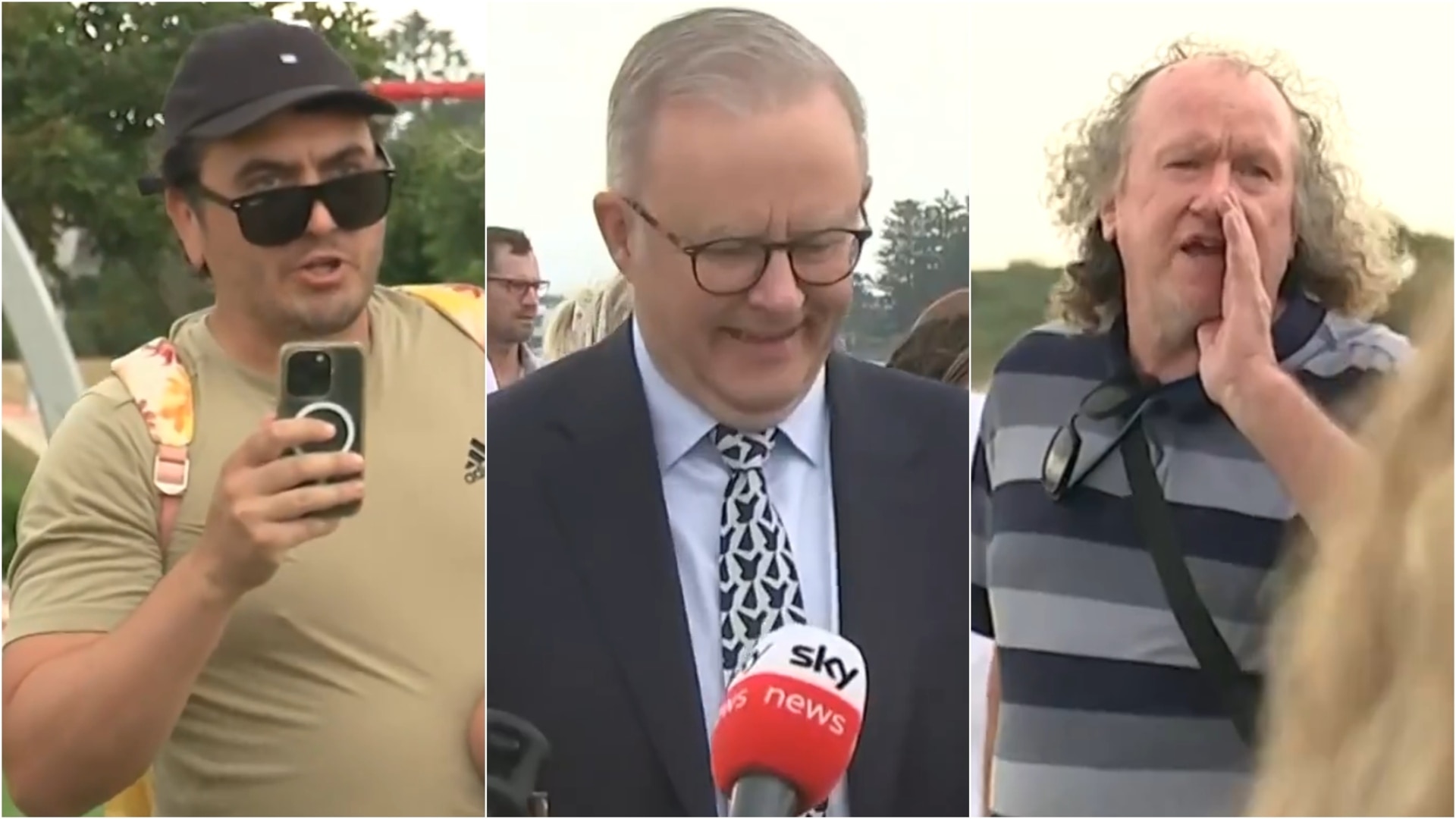
The Prime Minister struggled to speak over a small group of locals opposed to an offshore wind zone off the Illawarra amid calls of “Go home, Albo; get out of here”, and “You don’t support the regions”.
Albanese seemed taken aback at the heckling but it shouldn’t have come as a surprise. Come election time, his team will have to pick a careful path through regional Australia if he is to avoid further embarrassment.
From Walcha to Warracknabeal, Nundle to north Queensland, small community groups are mobilising, mostly in Nationals strongholds but also Labor seats such as Whitlam in the Illawarra.
People who have never protested against anything are meeting over back fences and in school halls; they’re writing submissions and collecting petitions, engaging soil experts, lawyers and valuers and educating themselves on planning processes and complex energy rules.
If the Prime Minister or his Climate Change Minister Chris Bowen were to sit down with these residents, they would learn that many are not NIMBY whingers or anti-renewables rednecks acting at the behest of fossil fuel companies. I know this because I have sat in the country kitchens of decent hardworking people as they struggle to make sense of decisions made for them relating to their land. Giant transmission towers running past their homes or through lambing paddocks or forests they have planted and nurtured – where’s the sense in that, they ask. Some have managed to negotiate workarounds but many haven’t and it’s the powerlessness that eats at them.
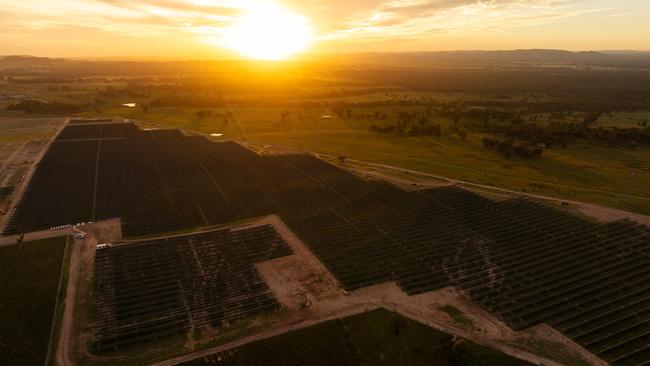
Other have watched productive farms in good rainfall areas being replaced with a sea of solar panels and they’ve wept at the destruction of generational friendships in formerly tight-knit towns divided into winners and losers by renewables developers armed with big cheque books and confidentiality agreements.
I’ve heard of mental health breakdowns and suicide attempts; people buckling under years of pressure and signing up or getting out. Helpfully, correspondence from renewables companies and transmission giants now often comes with information on where to seek mental health support.
If it’s been hard to win social licence for the renewables revolution in some parts of the country, it’s not hard to see why. Alex O’Brien, one of the offshore wind protesters who heckled Albanese on Friday, echoed the frustrations of others when he said his group, Responsible Future Illawarra, wanted accountability and proper engagement. The Illawarra offshore wind proposal, one of six priority areas identified in commonwealth waters, covers 1022sqkm at least 20km off the coast from Wombarra to Kiama in NSW. O’Brien said his group had concerns about the economic and environmental impact, jobs in tourism and fishing, and a delay to a Senate inquiry into the offshore wind industry consultation process.
“Our group came down here because we heard the Prime Minister was going to be here, and the Labor Party have continued to decline the opportunity to speak to our community about the offshore wind farm,” O’Brien said.
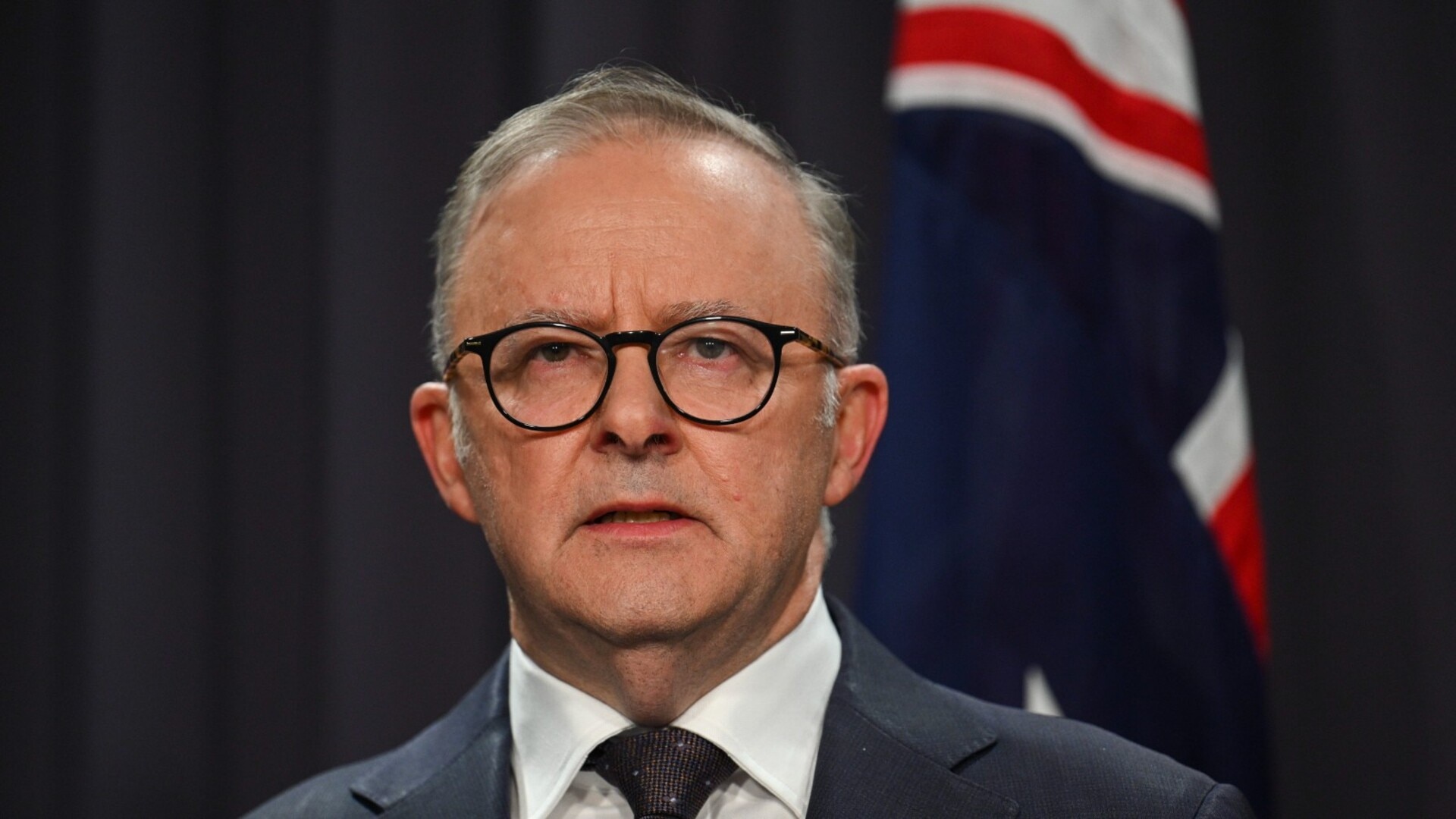
It doesn’t seem too much to ask: communities across the country selected to carry the heavy load of the renewables transition would like to be consulted and have questions answered and concerns addressed.
Glenden Watts, who is part of a movement resisting transmission lines through Victorian farms, said he was excited to meet Bowen in Canberra last year. “But he was pretty dismissive and wasn’t really interested,” he said. “I found it very disheartening and frustrating to be honest because it was clear we weren’t going to get anywhere. The trouble is Bowen is fully committed to this cause now and he has to stick with it, no matter what.”
A report by Energy Infrastructure Commissioner Andrew Dyer last year found 92 per cent of respondents were dissatisfied with the way project developers engaged the community. Dyer, who retired from the role last year, said the random renewable-energy push needed to be overhauled and a nationwide stocktake undertaken to determine what should be built and where it should go.
Since then farmer groups have continued to push for strict guidelines to exclude prime agricultural land from renewables projects, and scientists and conservationists have asked for similar guidance to avoid clearing of remnant vegetation for wind and solar farms.
Other interest groups have attempted to balance the ledger, with the Clean Energy Council pointing out the riches that will flow to regional communities: $1bn to farmers hosting renewables and $200m to regional communities by 2030. Farmers for Climate Action released a survey showing that 70 per cent of residents living in areas affected by renewables projects were supportive of them and 17 per cent opposed. Its chief executive Natalie Collard said the result matched other polls including one conducted by the CSIRO.
“The data shows the quiet majority of rural Australia is clearly in favour of clean energy projects locally, although many don’t realise they’re part of the quiet majority,’’ she said.
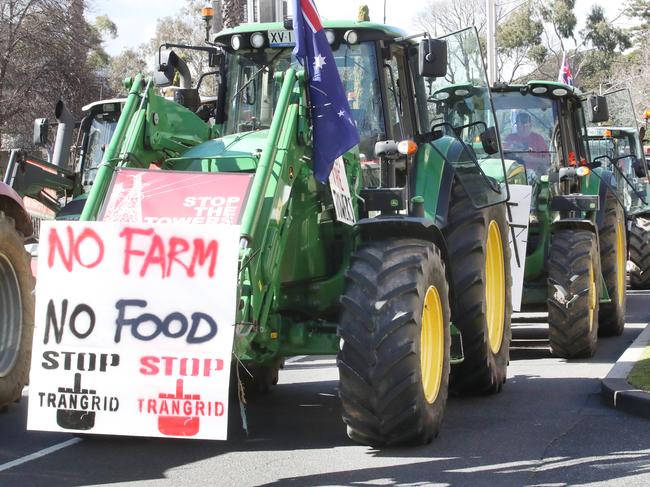
Victorian wheatbelt advocacy group, Farms For Food, said its recent survey showed nine in 10 people opposed renewables projects on farmland. Spokesman Ross Johns, a farmer from Warracknabeal and former deputy chairman of the Grains Research and Development Corporation, said the survey highlighted key concerns such as lack of planning between different energy proponents, ignoring the rights of project neighbours, inadequate community consultation and, in Victoria, fast-tracking of planning approval. “The government is out of control and has lost its connection to rural and regional Australia. It is ignoring agriculture and this survey clearly shows our communities are sick and tired of its poor strategy,” he said.


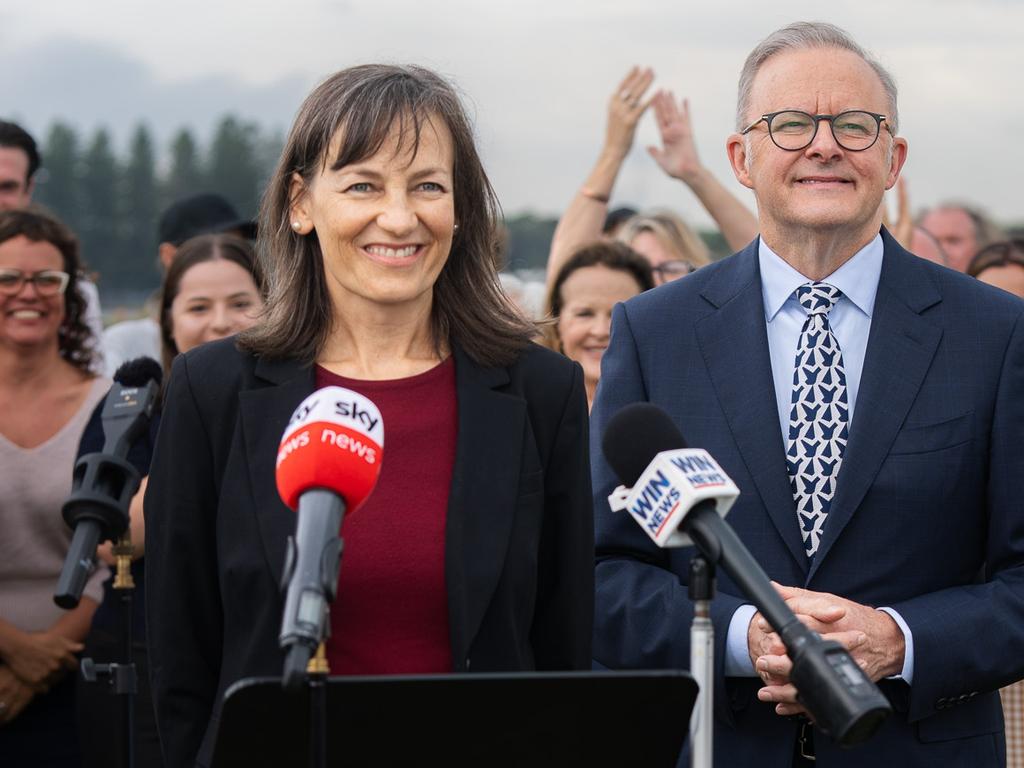

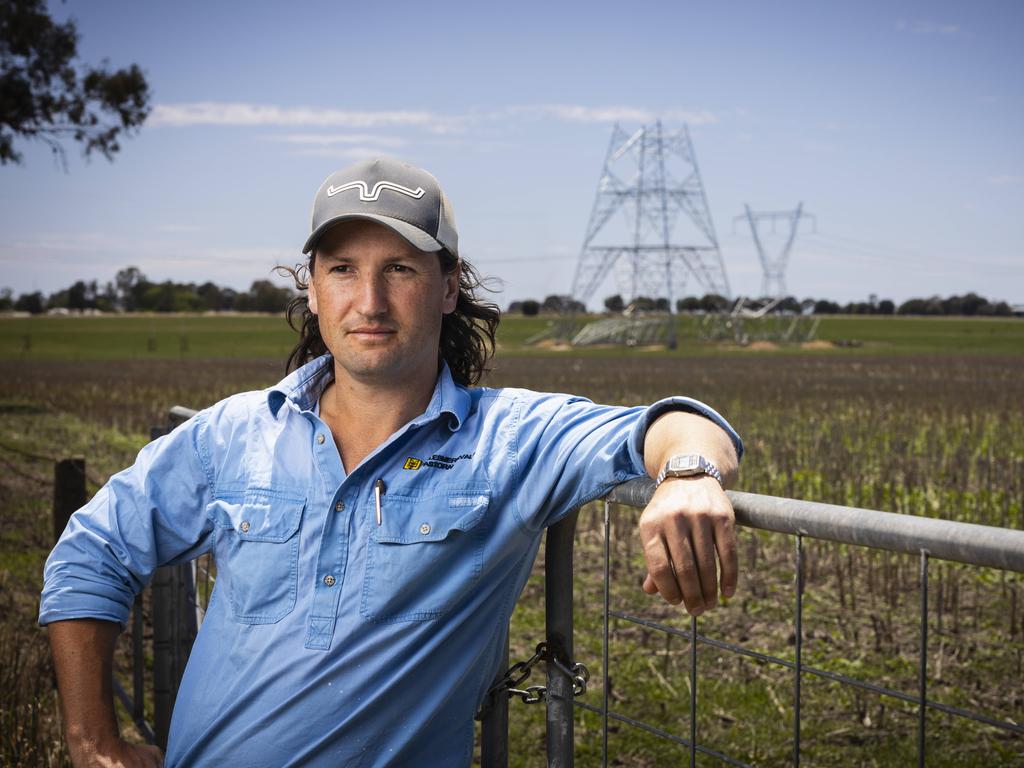



To join the conversation, please log in. Don't have an account? Register
Join the conversation, you are commenting as Logout